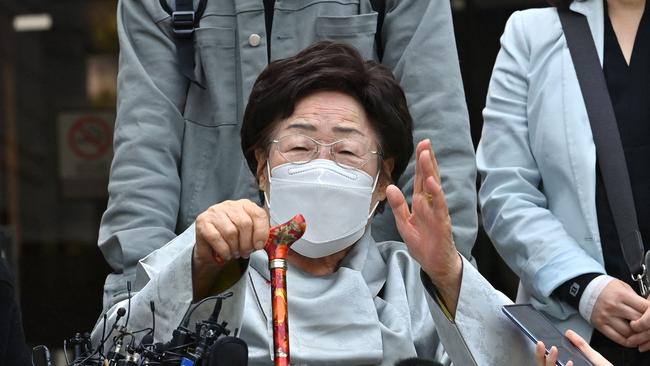South Korean court dismisses ‘comfort women’ case against Japan
The decision comes after the same court in January ordered Tokyo to compensate a dozen women forced to serve Japanese troops.

A South Korean court on Wednesday dismissed a case brought by a handful of World War II sex slaves and their families against the Japanese government, saying Tokyo enjoyed “sovereign immunity”.
The ruling comes after the same court in January ordered Tokyo to compensate a dozen women forced to serve Japanese troops — euphemistically labelled “comfort women” — marking the first civilian legal victory against Tokyo in South Korea.
The comfort women question and other issues stemming from Japan’s colonial rule over Korea has bedevilled their relations, despite a 1965 treaty which declared claims between them and their nationals had been settled.
Tokyo and Seoul are US allies, democracies and market economies, but their rift — which has worsened in recent years — presents US President Joe Biden with a foreign policy headache as he seeks to build a common front on China and nuclear-armed North Korea.
The Seoul Central District Court dismissed the case after “reaching the decision that sovereign immunity must be applied to the Japanese government”, Yonhap news agency reported.
“Diplomatic conflict will be inevitable in the process of sentencing and enforcing if the exception of sovereign immunity is recognised,” the court said.
The victims suffered “immense pain”, it added, but said the issue should be solved through “efforts including diplomatic negotiations”.
One plaintiff, a former comfort woman in her 90s, left the courtroom before the hearing ended. “This is really outrageous,” Lee Yong-soo said.
“But whether the result is good or bad, I will take the case to the International Court of Justice.”
The ruling will be a plus for improving ties between South Korea and Japan, whose disputes have spread to affect trade and security in recent years.
Up to 200,000 women, mostly from Korea but also other parts of Asia including China were forced to work in Japanese military brothels during World War II. The Japanese government denies it is directly responsible for the wartime abuses, maintaining that the victims were recruited by civilians and that the military brothels were commercially operated.
AFP



To join the conversation, please log in. Don't have an account? Register
Join the conversation, you are commenting as Logout